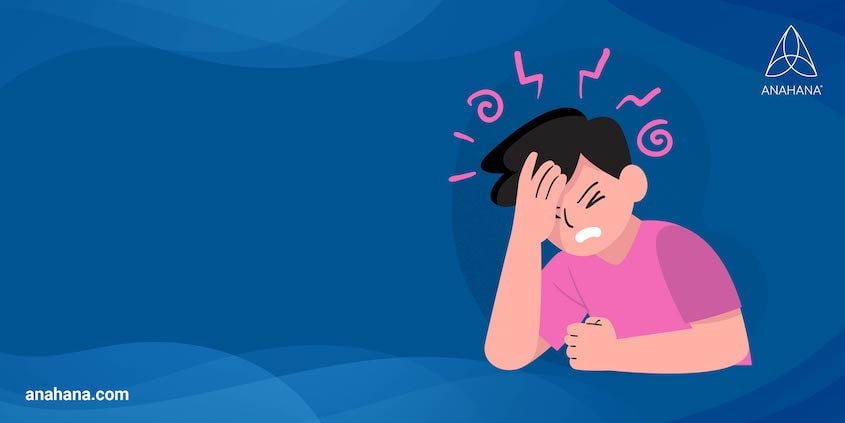
Table of Contents
The stress of daily pressures, work responsibilities, and personal challenges impact many people in today’s busy world. Chronic stress, if unmanaged, can have incredibly harmful effects on mental and physical health. Dive into proven stress management techniques to boost mental health and elevate well-being with practical tips.
Stress Management Explained
Stress management is an essential skill in the modern age as today’s busy society requires people to navigate many responsibilities and challenges, which can make it difficult to manage both mental and physical well-being.
Stress management refers to the broad spectrum of techniques aimed at controlling and reducing a person's stress levels to improve daily functioning and maintain mental and physical health.
Chronic Stress and Fight Or Flight Response
The body's natural reaction to danger is the "fight or flight" response, a physiological reaction to a perceived harmful event or threat. This response from time to time is a normal response to challenges or stressful situations.
The fight or flight response helps prepare the body to react to physical or mental threats by triggering physiological changes such as increasing heart rate and blood flow to the muscles.
Chronic stress can activate this stress response more frequently or longer than necessary, leading to various health issues.
Consistent activation of this fight or flight system can negatively impact the body, increasing the risk of health problems such as anxiety, depression, heart disease, and weight gain.
When stress becomes chronic, hormones, including epinephrine and cortisol, can negatively affect sleep patterns, immune function, cardiovascular health, anxiety, and depression.
Symptoms of Stress
Recognizing the symptoms of stress is crucial for identifying the causes of stress early and taking appropriate steps to manage it.
Physically, stress can manifest as many physical symptoms, including:
- Headaches
- High blood pressure
- Fatigue
- Weakened immune system
Cognitive symptoms of stress include:
- Difficulty concentrating
- Negative thinking
- Memory problems
Emotionally, one might experience symptoms such as:
- Anxiety
- Irritability
- Depression
Causes of Stress
Understanding the root causes and recognizing the signs of stress is the first step toward an effective stress management plan.
Common Stress Triggers
- Workplace demands: Tight deadlines, long hours, and challenging workplace environments can lead to high levels of occupational stress.
- Relationship issues: disagreements with a partner, family member, or friend can be a significant source of stress.
- Financial strain: Worries about debts, bills, and financial security can be stressors.
- Health concerns: Chronic illness or serious health problems can lead to elevated stress levels.
- Significant life changes: Events like moving, job changes, or losing a loved one can lead to excessive stress.
Benefits of Effective Stress Management
Effectively managing stress can lead to numerous benefits for one’s physical health, mental well-being, daily functioning, relationships, and overall well-being:
- Physical health: reduced risk of chronic diseases and improved immune response.
- Mental health: Lowered risk of mental health disorders and enhanced cognitive functions.
- Improved daily functioning: Enhanced productivity, better decision-making, and increased energy levels.
- Better relationships: reduced conflicts, improved communication, and strengthened bonds with loved ones.
- Overall quality of life: Increased happiness, contentment, and a positive attitude toward challenges.
Stress Management Techniques
Managing stress often requires a multifaceted approach. From adopting a balanced lifestyle and healthy diet to fine-tuning one’s mindset, here are some proven techniques to keep stress at bay.
- Healthy lifestyle changes: Making changes in one’s lifestyle can have incredible benefits for reducing stress.
- Diet: Consuming a balanced diet fuels the body and mind. Foods rich in omega-3 fatty acids, like salmon or flaxseeds, can combat the adverse effects of stress. Limiting caffeine and sugar can also stabilize mood and energy levels.
- Exercise: Physical activity acts as a natural stress reliever. Whether it's a brisk walk, yoga, or a high-intensity workout, exercise releases endorphins—chemicals in the brain that act as natural painkillers and mood elevators. Some stress-relieving forms of exercise include: aerobic exercise, nature walks, yoga, Tai Chi, Pilates and dancing to music.
Self-Care

Setting aside time for oneself is essential. This could be reading a book, practicing deep breathing exercises, relaxation techniques, or engaging in hobbies. Remember, it's not selfish; it's self-preservation.
Time Management and Scheduling Relaxation
Managing one’s time can reduce feelings of being overwhelmed.
Break tasks into manageable steps, prioritize them, and allocate specific break times. Additionally, schedule regular relaxation or "me" time in the day, even if it's just a few minutes of deep breathing or a short walk.
Short-Term Stress Relief Techniques
When stress strikes suddenly, having quick relief methods to use at the moment can be a lifesaver:
- Deep breaths: taking a few deep breaths can calm the nervous system quickly.
- Mindful moments: taking mindful moments can calm stress by helping one stay present and aware. You can practice this by grounding in the present, directing their focus toward surroundings, the sounds in vicinity, or the sensation of breath.
- Short breaks: sometimes, taking a quick break from a challenging situation can be beneficial when feeling overwhelmed. For example, taking a moment to step outside or change the environment can quickly reduce stress in a stressful conversation or meeting.
Emotional Approaches and Mindset Shifts
One’s perception plays a significant role in feeling overwhelmed when one experiences stress.
- Positive self-talk: Replace negative thoughts with empowering ones. Instead of thinking, "I can't handle this," try, "I'll do my best."
- Limit exposure: Reduce exposure to stressors when possible. This might mean limiting news intake or setting boundaries in relationships.
- Acceptance: Some things are out of one’s control. Focus on what can be changed and accept what can't be changed. This shift can help to decrease feelings of helplessness and overwhelm.
Mindfulness
Mindfulness is staying present and fully engaging with the here and now.
Mindfulness meditation encourages self-awareness and a deeper connection to the present moment. It allows one to observe one's thoughts and feelings without judgment.
Practicing mindfulness can cultivate an abundance mindset, transforming everyday challenges into opportunities for growth and manifestation.
Meditation
Meditation is a technique that people have used for centuries to relieve stress and promote relaxation and inner peace. There are various forms of meditation:
- Guided meditation: a process led by an instructor, often focusing on specific themes like gratitude meditation or loving-kindness meditation.
- Body scan meditation: concentrating on different body parts, noting sensations or discomfort.
- Chakra meditation: balancing the body's energy centers.
- Morning and night meditation: setting intentions in the morning or unwinding in the evening, these sessions can help manage anxiety and strengthen the mind-body connection.
Breathing
Practice deep breathing as a quick way to calm the mind and reduce stress:
- Pursed lip breathing and diaphragmatic breathing: techniques that slow down breathing and increase oxygen.
- Mindful breathing: focusing solely on the rhythm of your breath.
- Box breathing and 478 breathing: specific patterns that can calm the nervous system.
- Pranayama and tummo breathing: Ancient practices that enhance lung capacity and invigorate the body.
Yoga
Yoga is a holistic practice that combines physical postures, breathing exercises, and meditation:
- Gentle and yin yoga: slow-paced styles that focus on stretching and relaxation.
- Vinyasa and ashtanga yoga: dynamic practices emphasizing movement synchronization with breath.
- Iyengar and hatha yoga: focusing on alignment and holding postures.
- Pranayama yoga: centered on breathing techniques.
- Restorative yoga and yoga nidra: deep relaxation practices that rejuvenate mind and body.
Sleep
A good night's sleep is one of the most effective stress management methods. Incorporating night meditation or body scan meditation before bed can set the stage for deeper, more restful sleep.
Recognizing the importance of sleep and creating a consistent routine can drastically improve mental well-being and resilience to daily stressors.
Cognitive Behavioral Therapy

Cognitive Behavioral Therapy (CBT) can be a very effective tool for managing stress and improving sleep.
CBT is a form of therapy that teaches individuals to recognize and challenge negative thought patterns, promoting healthier behaviors and emotions.
When applied to sleep, CBT can address the underlying causes of sleep disturbances, providing long-term solutions to insomnia and stress-related sleep issues.
Managing Stress: Work, Relationships, Studies
Stress can manifest in various areas of one’s life. Knowing how to manage stress tailored to specific scenarios can make a significant difference.
Workplace
The workplace can often be a primary source of stress due to tight deadlines, team dynamics, and high expectations. Here are some techniques to manage workplace stress:
- Set clear boundaries: Determine when the workday starts and ends. Avoid the urge to continue working outside of these hours. This helps with a work-life balance.
- Take regular breaks: Short breaks during the day can improve concentration and reduce fatigue.
- Organize and prioritize: A clear to-do list can make tasks more manageable and reduce feeling overwhelmed. It also helps prepare for a stressful meeting and the ability to cope in situations where too much stress can start to feel overwhelming.
- Seek support: Don't hesitate to talk to a supervisor about concerns or to seek emotional support from colleagues.
Relationships and Family
Interpersonal relationships, while fulfilling, can also be a source of unnecessary stress. Here's how to handle stress in personal relationships:
- Open communication: Address concerns or conflicts directly. Open and honest communication can prevent misunderstandings and build trust.
- Spend quality time: Make an effort to spend quality time with loved ones, engaging in activities that foster connection.
- Seek counseling: Relationship or family counseling can provide tools and strategies to manage conflicts and enhance bonds.
- Set boundaries: It's essential to set personal boundaries, ensuring time for self-care and individual pursuits.
School and Academic Settings
Academic pressures can lead to significant stress, especially in stressful situations, for students aiming for high achievements. Here's how to manage stress in academic settings:
- Stay organized: Use calendars or task management apps to track assignments and deadlines. This will also be an excellent tool helping to improve time management skills.
- Create a study routine: Consistent study habits can reduce last-minute cramming and associated stress.
- Engage in group studies: Sharing knowledge and discussing topics can make learning enjoyable and less isolating.
- Seek help: Utilize resources like tutors, counselors, or teachers when struggling with academic challenges. They're there to help.
Frequently Asked Questions About Stress Management
How can I identify my stress triggers?
To identify stress triggers, reflect on recent situations that caused frustration, anxiety, or worry. Observe your emotional and physical responses, recurring thought patterns, and physical responses.
Take time to reflect on your current work environment, personal life, life changes, and time patterns.
Maintaining a stress journal and seeking feedback from others can provide additional insights. If needed, consult a therapist for guidance in understanding your triggers.
Can technology such as meditation apps help with stress management?
Yes, technology, such as meditation apps, can be effective tools for stress reduction.
Many useful apps offer guided mindfulness and relaxation exercises that are accessible resources for people to manage stress, improve focus, and improve well-being.
References
Live Better by Building on the Six Pillars of Health - The American Institute of Stress
Top ways to reduce daily stress - Harvard Health
How to Recover from Work Stress, According to Science
Healthy ways to handle life’s stressors
Disclaimer
The contents of this article are provided for informational purposes only and are not intended to substitute for professional medical advice, diagnosis, or treatment. It is always recommended to consult with a qualified healthcare provider before making any health-related changes or if you have any questions or concerns about your health. Anahana is not liable for any errors, omissions, or consequences that may occur from using the information provided.

By: Anahana
The Anahana team of researchers, writers, topic experts, and computer scientists come together worldwide to create educational and practical wellbeing articles, courses, and technology. Experienced professionals in mental and physical health, meditation, yoga, pilates, and many other fields collaborate to make complex topics easy to understand.
